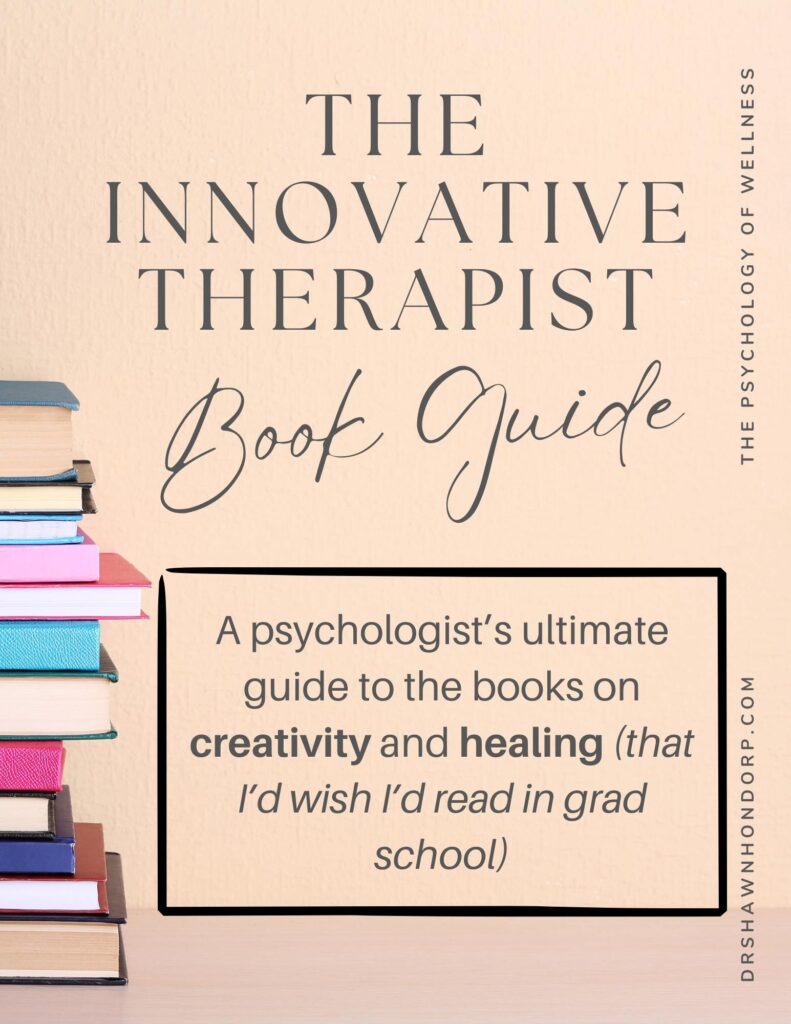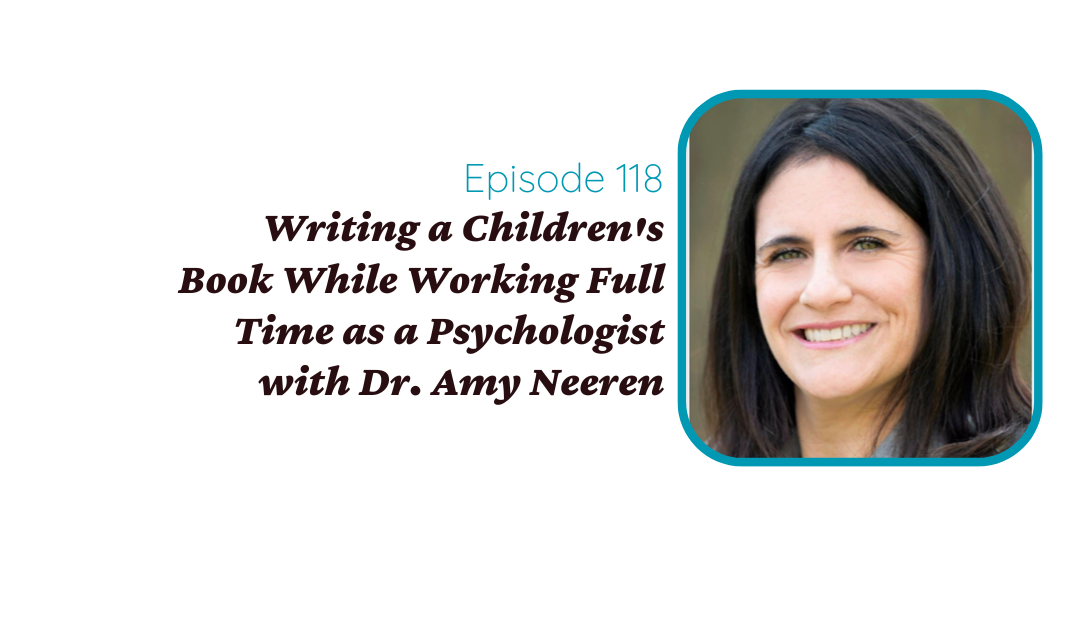Podcast: Play in new window | Download
Subscribe to The Innovative Therapist Podcast! Apple Podcasts | Spotify | RSS | More
Episode 118. Today’s episode is a special conversation with Dr. Amy Neeren who has shown amazing resilience in terms of finding a career in psychology that felt right for her, and a big piece of that has been pursuing a career outside of her full-time work as a psychologist in writing fiction.
She has published two children’s books in the traditional publishing world (NO SMALL FEAT, as we learn in this conversation) and is working on a novel now. All of these writings have a tie to mental health, and to her story to some degree.
We talk about how writing can be so healing, and so hard, why she does it, why she chose traditional publishing route, and what keeps her going.
I really enjoyed this conversation and I’m sure you will too.
What to Expect in this Episode
We cover the following:
- Amy’s journey to getting a PhD in Clinical Psychology and how stuck she felt after getting her degree and not finding private practice to be right for her
- How Amy got into writing (including whether she always wanted to be a writer or not)
- Why she chose traditional publishing over self-publishing
- How long it took Amy to publish her first and second books (these answers shocked me)
- The new project she’s working on now
- How she feels about and deals with rejection (and how often she gets to practice this!)
- A discussion on how to incorporate creativity in our lives as therapists
- Why she wrote her children’s book series Nellie in Knots (Book 1 in the series here, Book 2 here) (and how much my daughter and I LOVE this series!)
- What the two types of writers are (Plotters and Pantsers) and which one Amy is
- And so much more!
Join the Innovative Therapist Book Club Today!
Want to learn about the Top 4 books I wish I had read many years ago that have shifted my view of healing and human relationships?
Download the free guide today to find out – I bet some of them will surprise you! You can grab it at DrHondorp.com/Books

Disclaimer: This blog and podcast is for informational and educational purposes only. It is not a substitute for individual professional advice or treatment, including medical or mental health advice. It does not constitute a provider-patient relationship.
